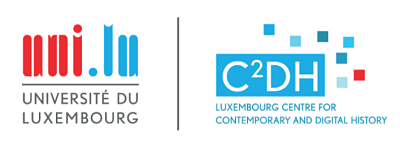“What we Instagram”
Yuheng Hu, Lydia Manikonda and Subbarao Kambhampati, “What We Instagram: A First Analysis of Instagram Photo Content and User Types”, Proceedings of the International AAAI Conference on Web and Social Media, 2014, 8(1). Abstract: (…) In this paper, we present both qualitative and quantitative analysis on Instagram. We use computer vision techniques to examine the photo content. … Continued
Instagram and Contemporary Image
“This first in-depth study of Instagram by Lev Manovich combines methods from art history, media studies, and data science, and draws on computational analysis of 16 million Instagram photos shared in 17 global cities since 2012. The data collection and analysis were performed in Manovich’s Cultural Analytics Lab in the Qualcomm Institute (UCSD Division of … Continued
Newslore
Frank Russell, Newslore. Contemporary Folklore on the Internet, University Press of Mississipi, 2011. ” (…) In Newslore: Contemporary Folklore on the Internet author Russell Frank offers a snapshot of the items of newslore disseminated via the Internet that gained the widest currency around the turn of the millennium. Among the newsmakers lampooned in e-mails and on the … Continued
Nostalgia
Kyle Chaya, “The great Web 1.0 revival“, Gizmodo, 28 October 2012. ” (…) We’re tired of being told what to do, what to see, and how to interact online by platforms that resemble rat mazes more than sandboxes. We’re nostalgic for the close-knit, DIY nature of the early web, where everything was smaller, from the … Continued
Phreaks, hackers and trolls
Gabriella Coleman, “Phreaks, Hackers, and Trolls: The Politics of Transgression and Spectacle“, in Michael Mandiberg (ed.). The Social Media Reader, New York, New York University Press, 2012. Also read the HACKER entry in The Johns Hopkins Encyclopedia of Digital Textuality, 2014 by E. Gabriella Coleman And last but not least : Gabriela Coleman, Hacker, Hoaxer, Whistleblower, … Continued
